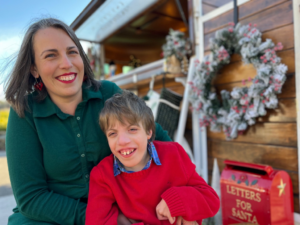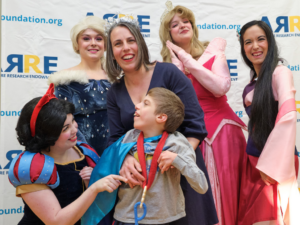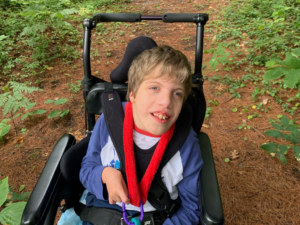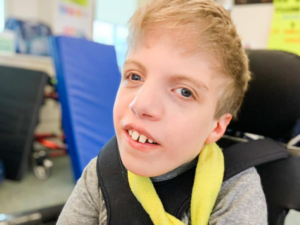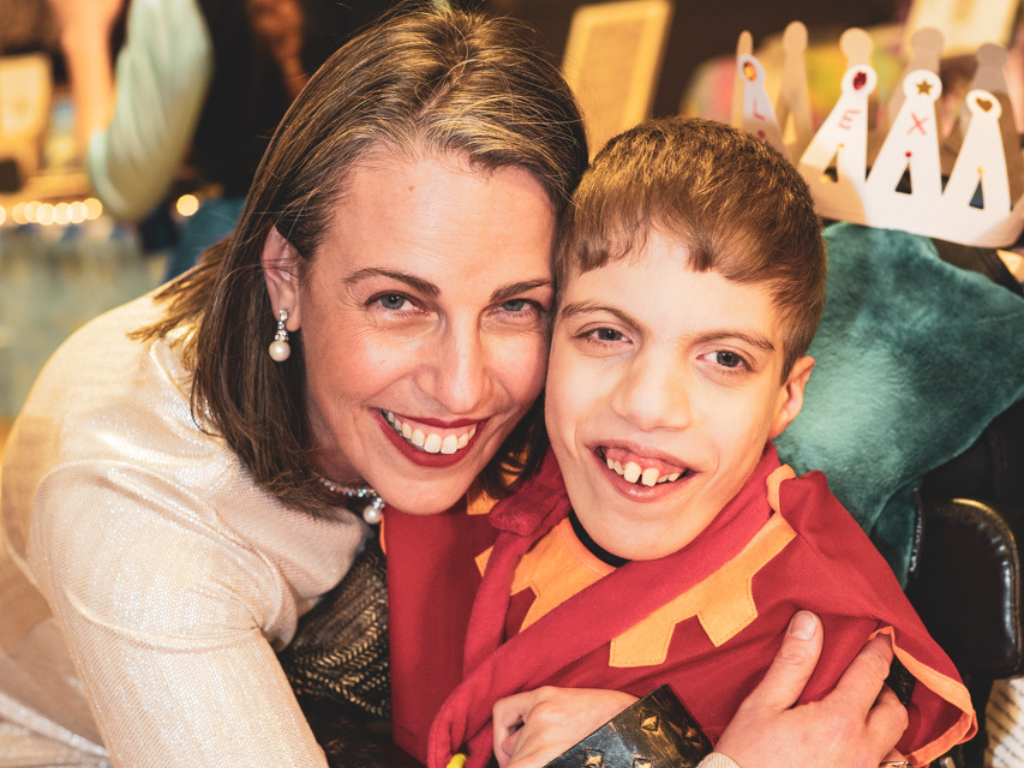 Laura Badmaev is a rare mom to a child with Bohring-Opitz Syndrome. In recognition of Bohring-Opitz Syndrome Awareness Day on April 6, Global Genes asked Laura to talk about her son’s journey with the condition, and how it led to her starting a foundation for the ASXL community.
Laura Badmaev is a rare mom to a child with Bohring-Opitz Syndrome. In recognition of Bohring-Opitz Syndrome Awareness Day on April 6, Global Genes asked Laura to talk about her son’s journey with the condition, and how it led to her starting a foundation for the ASXL community.
I started the ASXL Rare Research Endowment (ARRE) Foundation in 2018 for children like my son, Alex, because of the lack of medical knowledge and published research about his ultra-rare neurodevelopmental disorder. A few years prior, Alex had been diagnosed with Bohring-Opitz Syndrome – the result of a de novo mutation in his ASXL1 gene. Our world was turned upside down as we plunged into expansive void of uncertainty that we needed to navigate. In collaboration with other patient families and medical advisors, we launched the ARRE Foundation to catalyze research for the three ASXL-related disorders – Bohring-Opitz Syndrome (ASXL1), Shashi-Pena Syndrome (ASXL2), and Bainbridge Ropers Syndrome (ASXL3).
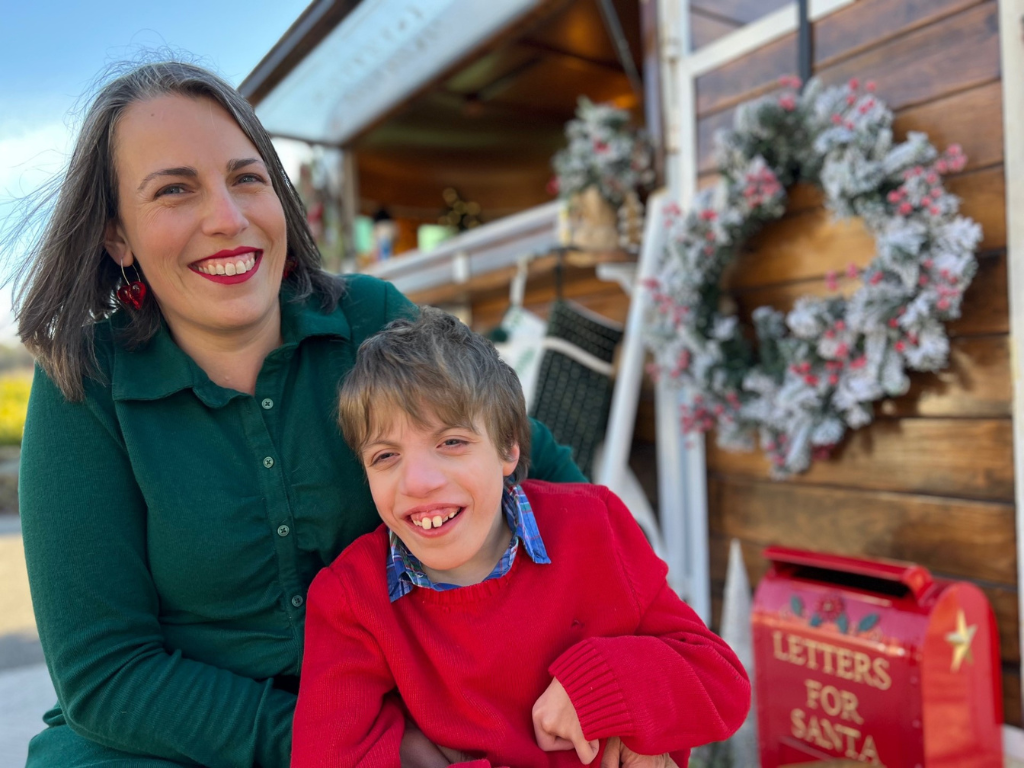 Alex is now 12 years old, has developmental delays, is 100% nonverbal, and sees medical specialists for almost every system of the body. He requires 1-on-1 care for all aspects of daily life including feeding, toileting, bathing, and participating in any activities. Every day he is suffering from chronic, complex pain and cannot communicate everything that hurts. Over the last year, Alex has been on 10 antibiotics for his recurrent urinary-related infections and bladder dysfunction. He has had multiple major orthopedic surgeries to reconstruct his hips, pelvis, and feet. We know of several other families who are dealing with similar issues with bladder dysfunction and complex orthopedic surgeries, yet – like many of our experiences in the last 12 years of Alex’s life – there is nothing in the medical literature describing these issues for his disease, his life expectations, or what we can do to help him.
Alex is now 12 years old, has developmental delays, is 100% nonverbal, and sees medical specialists for almost every system of the body. He requires 1-on-1 care for all aspects of daily life including feeding, toileting, bathing, and participating in any activities. Every day he is suffering from chronic, complex pain and cannot communicate everything that hurts. Over the last year, Alex has been on 10 antibiotics for his recurrent urinary-related infections and bladder dysfunction. He has had multiple major orthopedic surgeries to reconstruct his hips, pelvis, and feet. We know of several other families who are dealing with similar issues with bladder dysfunction and complex orthopedic surgeries, yet – like many of our experiences in the last 12 years of Alex’s life – there is nothing in the medical literature describing these issues for his disease, his life expectations, or what we can do to help him.
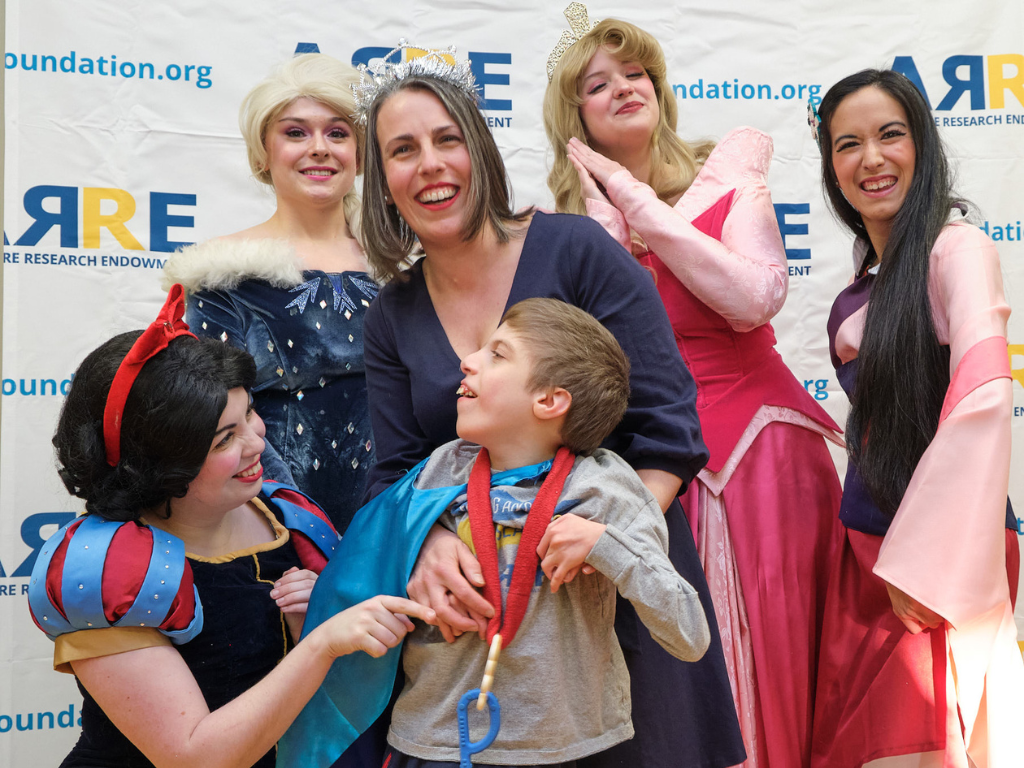 My family’s story is one of many in our growing ASXL community. Our children have a significant spectrum of challenges. Each year they are faced with new, unexpected symptoms, hospitalizations, and issues. Our families want to know more about these disorders, what to expect, and how to improve the quality of life for their children.
My family’s story is one of many in our growing ASXL community. Our children have a significant spectrum of challenges. Each year they are faced with new, unexpected symptoms, hospitalizations, and issues. Our families want to know more about these disorders, what to expect, and how to improve the quality of life for their children.
At the ASXL Research Symposium last year – the ARRE Foundation’s annual gathering of the growing research community interested in the ASXL-related disorders and the genes that cause them – I challenged attendees to think like a rocket scientist. In the words of Ozan Varol, a former Mars Exploration scientist and professor, rocket scientists “imagine the unimaginable and solve the unsolvable. They transform failures into triumphs and constraints into advantages…They’re moved not by blind conviction but by self-doubt…They know that the rules aren’t set in stone, the default can be altered, and a new path can be forged.”
Our children’s clocks are ticking, and we need giant leaps to accelerate the path to treatments and a better life for our children. The ARRE Foundation has catalyzed the growth of our research community from 10 researchers when I founded the organization in 2018 to over 70 researchers today. We have committed over $825,000 to ASXL research. We are invested in new studies that are developing new biomarkers and outcome measures that fit the unique needs of severely affected individuals like those in our community.
On 2024 Bohring-Opitz Syndrome Awareness Day, we have so much progress to celebrate while we keep our trajectory aimed toward the big goals ahead of us.

Stay Connected
Sign up for updates straight to your inbox.


